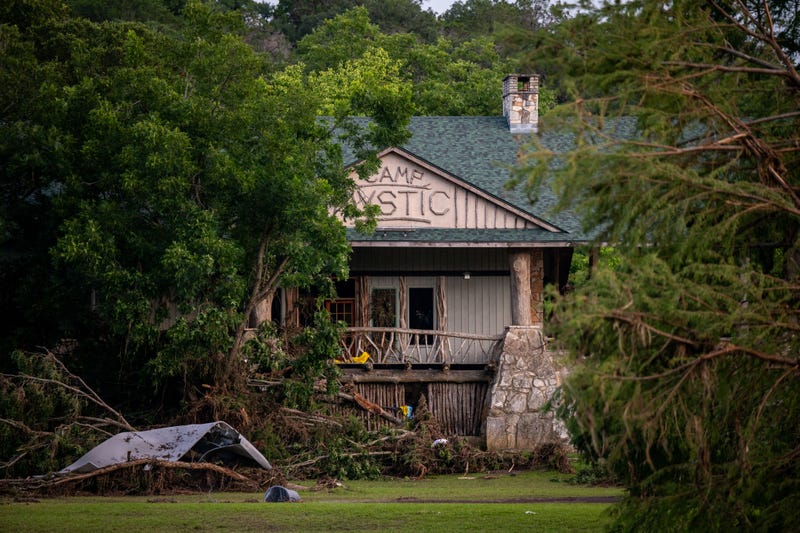
Several longtime youth camps in Kerr County say they’re being squeezed by a new Texas law that bans cabins from being located in 100-year floodplains.
Camp directors warn that complying with the law could cost millions of dollars in rebuilding or relocation expenses-money they don’t have-and could ultimately force some camps to shut down after decades of serving Hill Country families.
The measure, which took effect Sept. 1, was designed to reduce the risk of flooding tragedies after recent storms caused dangerous water rescues in Central Texas. State leaders argue the rules are necessary to protect campers and staff in flood-prone areas.
But Kerr County camp operators say the law fails to consider the region’s unique history and landscape. Many camps were founded in the early 20th century along the Guadalupe River, where cabins and recreation areas have been fixtures for generations. Owners argue that newer flood-control systems and emergency protocols make the camps safe, and they say sudden relocation orders jeopardize not just their livelihoods but also the cultural tradition of Texas summer camp.
Local officials are now caught in the middle, with camp operators asking lawmakers for flexibility, financial assistance, or at least a longer timeline to comply. Until then, the future of some of Kerr County’s most storied summer camps remains uncertain.
Q1: What prompted Texas lawmakers to pass this new floodplain cabin ban in the first place?
Lawmakers pointed to repeated flooding events in Central Texas, where rivers can rise quickly and put people in danger. In particular, they cited rescues during recent Hill Country floods and longstanding warnings from engineers that youth camps are especially vulnerable when cabins sit too close to rivers. The law is part of a broader push for disaster-preparedness reforms.
Q2: How significant are these youth camps to Kerr County’s local economy and culture?
Very significant. Kerr County has been known for its youth camps since the 1920s, drawing thousands of children every summer and generating seasonal jobs and tourism revenue. Beyond economics, the camps are woven into the cultural fabric of the Hill Country—many families send multiple generations through the same programs, making closures feel like a loss of heritage as much as business.
Q3: Could there be compromises, like state funding or exemptions, to help the camps comply without shutting down?
Possibly. Camp operators are already lobbying for relief measures, such as grants, low-interest loans, or phased compliance schedules. Lawmakers could carve out exemptions for historic properties or require enhanced safety protocols instead of outright relocation. Whether the state agrees will depend on balancing public safety with preserving a local institution.
LISTEN on the Audacy App
Tell your Smart Speaker to "PLAY 1080 KRLD"
Sign Up to receive our KRLD Insider Newsletter for more news
Follow us on Facebook | Twitter | Instagram | YouTube
